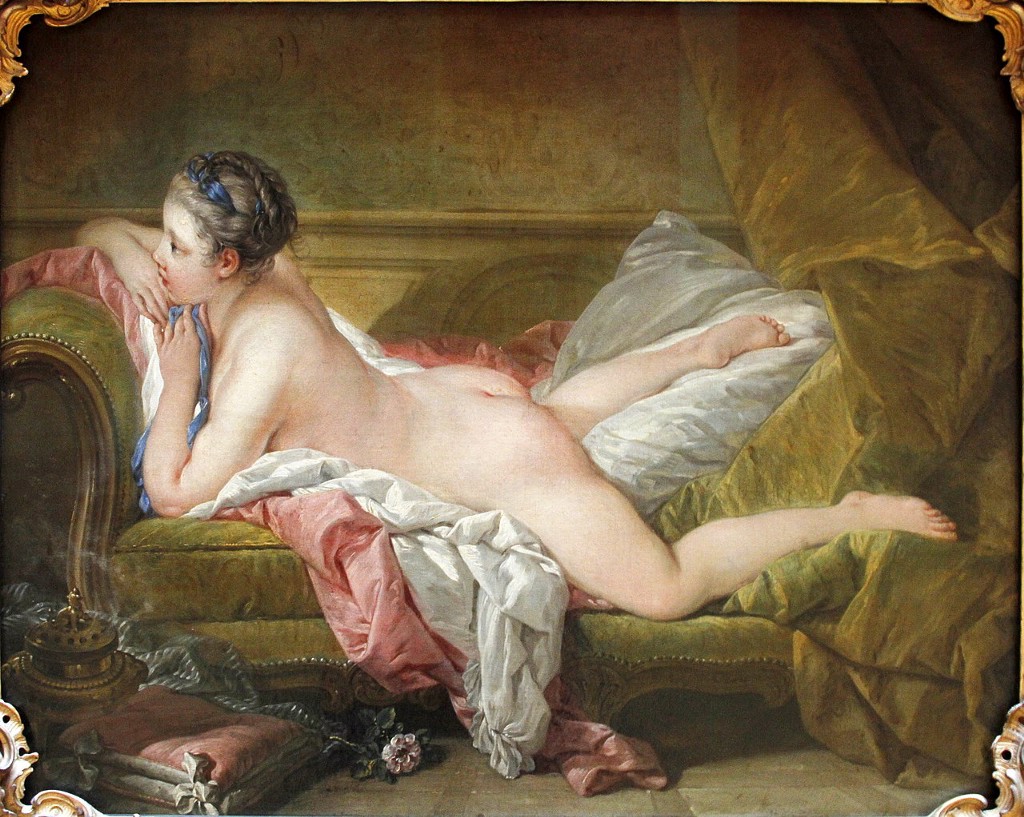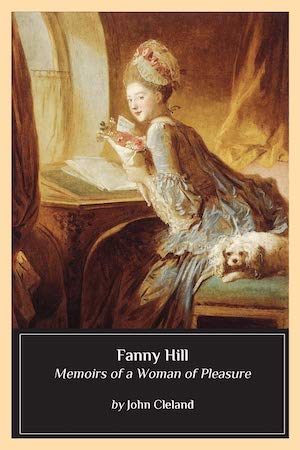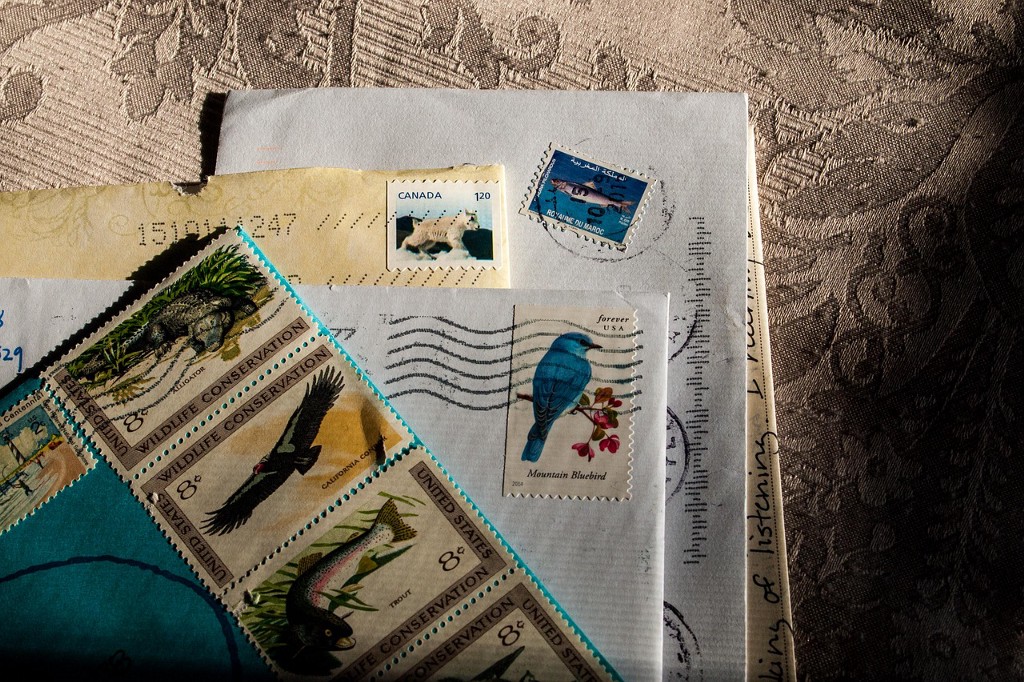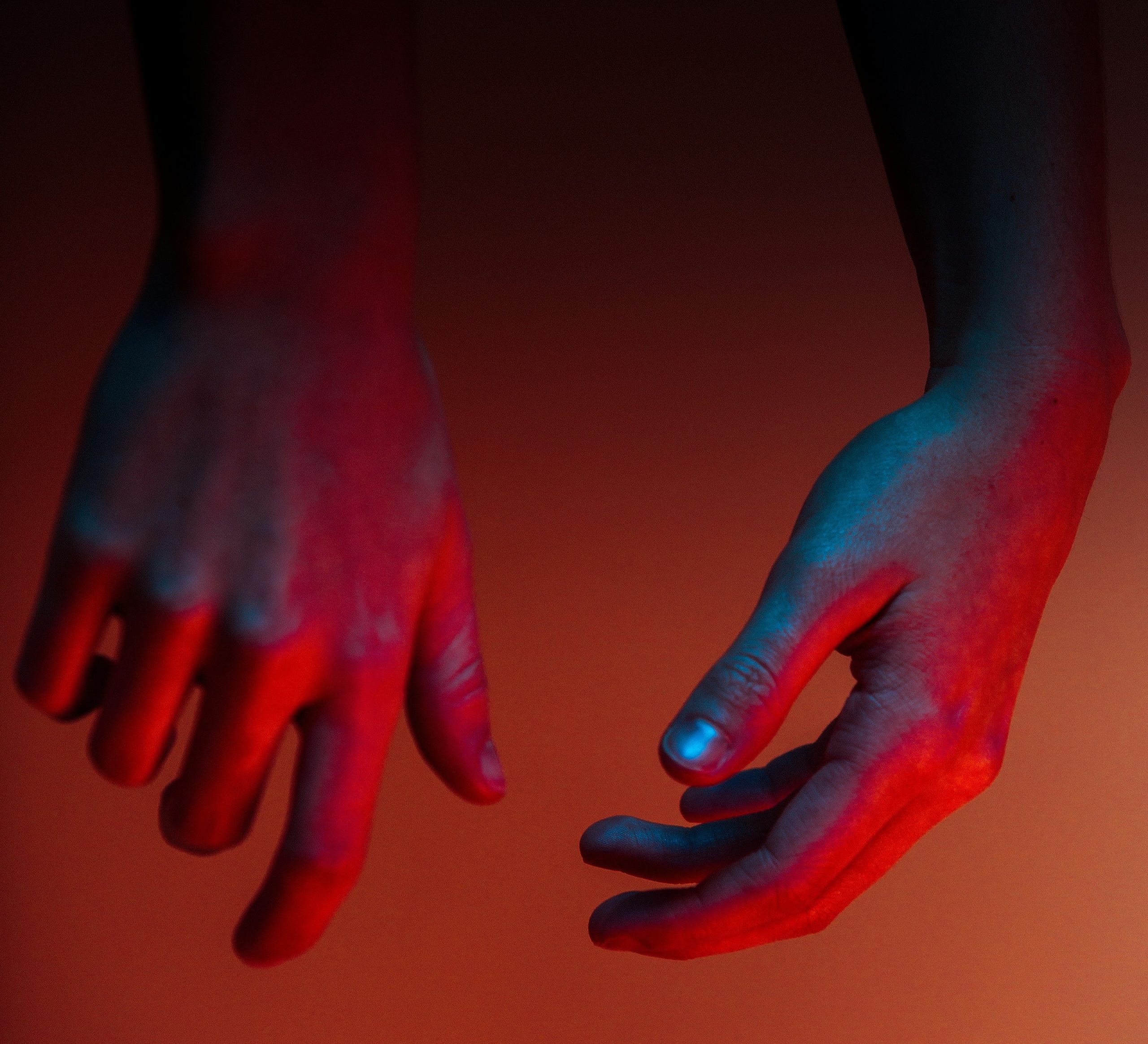Novel Gazing
An 18th-Century Erotic Novel Taught Me All the Wrong Lessons About Desire
“Fanny Hill” made me think sexuality could be simple, but what I found in my real life was anything but

Novel Gazing is Electric Literature’s personal essay series about the way reading shapes our lives. This time, we asked: What’s a book you misunderstood?
The first time I learned to orgasm was while listening to Fanny Hill. I was 16. The blanket of shame tucked itself around me as soon as the pleasure faded.
I was a bookish, introverted girl with very few friends, and I went to bed each night with an audiobook. The comforting voice trickling from my headphones reminded me of childhood, when my mom would read to me before bed and my mind would quiet: no SATs, no homework, no fights with my father or frenemies. For hours, I scoured Librivox, a free listening site featuring books in the public domain, for classics like Robinson Crusoe and The Count of Monte Cristo. One afternoon, while exploring new genres, I discovered the Erotica section. My cheeks flamed, but I clicked on it anyway. Flustered, I could barely allow myself to skim their titles. At random, I downloaded Fanny Hill: Memoirs of a Woman of Pleasure by John Cleland, published in 1749.
That night, I curled up under the covers to the sound of a deep male voice narrating the misfortunes of young Fanny, orphaned at age 14 and trying to survive through good looks and seduction in England. She found love with her husband Charles, but when he disappeared, she was taken in by Mr. H and lived unhappily for a while as his mistress. She then embarked on numerous sexual adventures as a happy courtesan, before reuniting with Charles by chance and settling down with him in content, married life.
Fanny and I had nothing in common. I was a shy Chinese immigrant student who wore baggy sweatshirts and discount sneakers. My strict parents forbade me from prom and sleepovers. I’d never watched porn, and I was too nervous to talk to boys, let alone touch them. Nevertheless, I was drawn to Fanny’s adventurous spirit and unapologetic pursuit of lust. She was a mirror to my own sexual curiosity, and she was both student and teacher, at times the shocked voyeur observing other couples and at times the mistress luring her subjects to do her bidding. In her world, there was no such thing as deviance — all acts were natural expressions of the body, full of play and affection. Nothing was forbidden.
Despite the ridiculous plot, I found satisfaction in a narrative in which a woman does not suffer eternal shame and damnation for having embraced her desires. Fanny is the opposite of Hester Prynne. She suffers no consequences for promiscuity. On the contrary, she finds true love, bears children, and leads a wealthy, respectable life as a wife and mother after all her exploits, all while magically avoiding trauma, STDs, and unplanned pregnancies. Though the narrator of Fanny Hill is a woman, it’s no surprise that the book was written by a man — its plot is that of every man who has sown his wild oats and gone on to lead a happy life without shame. Yet, almost 300 years later, this still represents a fantasy for most women. We have been taught from a young age that following our desires leads to stigma and tragedy.
The book wasn’t just an account of lurid sex; it was also an exercise in imagination and erotic language. Cleland challenged himself to write an erotic novel without using foul words or explicit names. Instead, he relied on verbal dexterity and figurative language to convey desire, over and over again. Of course, not all desires were the same. There was the gentle affection of Charles, the primal virility of a young footman, then the performative exhibits at Mrs. Coles’ brothel. Through Fanny’s eyes, I learned to look, really look, at the male body through language. Along with detailed descriptions of female beauty, Cleland painted male subjects with equal admiration and endowed them with lush metaphors and imagery. In describing Fanny’s first love and husband, Charles, he writes,
The parting of the double ruby pout of his lips seem’d to exhale an air sweeter and purer than what it drew in: ah! what violence did it not cost me to refrain the so tempted kiss!
Then, a paragraph later,
The platform of his snow-white bosom, that was laid out in a manly proportion, presented, on the vermilion summit of each pap, the idea of a rose about to blow.
I had never heard a man described in such intricate language, usually reserved for women, and the book was full of astute, tender, and at times over-the-top observations of the male body. Moreover, I had never heard a female voice express such vehement and specific desire. The references in the passage to ruby lips, purity, kiss, and rose reminded me of the scene in Romeo and Juliet in which the two lovers meet for the first time and fan each other’s desire with playful banter. Juliet, however, would not have penned a memoir detailing Romeo’s “machine.”
Although I hadn’t yet learned the term “the female gaze,” I was embodying it through Fanny’s eyes. When I liked a boy, I tried to imagine the taste of his mouth, the texture of his hair under my hand, his smell. For the first time, I allowed myself to think of lust as something not to be ashamed of but to honor. Cleland’s excessive language celebrates Fanny’s excessive lifestyle, where at the core of lust is a timeless ritual without censure, supervision, or constraint. In fact, the word lust has not evolved much etymologically from Old English, though it was used in a broader sense, beyond the sexual context. It even has a cognate, las, in Sanskrit. Although in contemporary usage it had acquired a narrowed meaning and seedy connotation, it used to mean simply pleasure.
I had never heard a man described in such intricate language, usually reserved for women.
I envied Fanny for having words for her feelings and clarity in her desires. In my college years, when I finally began to explore sexual intimacy with men, the overwhelming emotion I felt was confusion. Desire seemed so simple for Fanny — it freed her from the burdens of life. So how come, after my first kiss with a drunken boy on the beer-stained dance floor, all I could feel was fear and dismay? The taste of another person’s mouth failed to evoke a rush of joy. In that moment, I was made aware of desire only by its absence. It was as if Fanny had given me a false map to a pleasure I could not find.
Once, a boy said me, “Tell me what you want.” All I could muster was, “I don’t know.” He wanted me to put my desire into language, but it was not a specific act or tangible object I could point to or describe. No matter how hard we searched, we could only brush against its shadow. It was like listening to a song underwater — if only I could break the surface; if only I could tell a hand where to go; if only I could put in words what I could not understand. My lust was a muffled, complicated, diluted version of what the book had led me to believe was natural. Unlike Fanny, who climaxes easily, orgasm eluded me whenever I was with another person. Only in solitude did it arrive, urgent and vengeful. For years, I felt like a broken music box. A hand would wind me up, and then — nothing.
I used to picture Fanny as an ancient Greek priestess in the cult of Aphrodite or Dionysus. Desire was her source of power, and she nourished it as much as she drank from it — she let herself be worshipped. In my favorite chapter, as revenge against Mr. H’s infidelity, she seduces a young footman and takes his virginity. Opening her legs, she grants him the privilege to marvel at the glorious sight, allowing him to caress her with trepidation and reverence.
Desire seemed so simple for Fanny — it freed her from the burdens of life.
In practice, however, I often felt powerless in the hookup dynamics of college and modern dating. The boys I encountered in college were often too awkward or inconsiderate to offer me sincere affection. Instead, they focused on their pleasure and ignored mine. Some even disparaged me out of their own insecurity. I remember feeling cold on a boy’s twin bed freshman year as he haphazardly jammed a finger inside me to “get me off” quickly so that it would be his turn next. The fluorescent ceiling light dispelled any illusion of romance. I felt alienated from him and myself all at once, the border between our bodies undeniable in our cracking joints and evasive eye contact.
In retrospect, through most of my life, the kind of desire I felt most acutely from men was calculation and aggression, the leering stares tracing my figure as I walked down the sidewalk, undressing me without permission. Once, a man stalked me all the way to the subway and got on the same car before I jumped off, right before the doors shut. Desire seemed a cage I couldn’t escape. To be wanted was to be in danger, and to want was to be ashamed. It exacted a price. I knew that as early as sixth grade, when a boy had put his hand around my waist and the other girls started calling me “whore.”
Unlike Fanny, lust didn’t unburden me. It became burden. A task to be taken care of, through a hookup or late night visit across campus, a physical need to get rid of so I could focus on other aspects of my life, to concentrate on my next exam or ace the next job interview. At times, I tried to make it my weapon, to go on the offensive and conquer another body so that I could not be subjugated, though it didn’t make me feel any safer than before. How was it so easy for Fanny? She exulted in her sexual exploits. I wanted to forget that mine had ever happened.
How was it so easy for Fanny? She exulted in her sexual exploits. I wanted to forget that mine had ever happened.
Then there were times desire manifested itself as pain. Driving home one night with a girlfriend who was recounting her sexual conquests like a waiter listing off menu specials, she suddenly asked, “Do you think I’m a slut?” The question came out of nowhere, yet its roots snaked deep in her bones. I stared at her profile, sitting in her power suit, her beautiful blond hair cascading down her shoulders, one hand on the wheel. She didn’t wait for me to react. “Oh, you don’t have to answer that. I know I am. It doesn’t matter.” She laughed nonchalantly. Only the slight tremor in her voice betrayed the pang that gnawed at both of us.
Fanny had made me fall for the allure of the female body as holy, but I no longer believe that the body is a sufficient container for desire. The lover resides in a space defiant of time. It is perhaps no coincidence that the fantasy of Fanny was concocted by a man in prison — in other words, someone with what must have seemed like an eternity to imagine. Desire cannot live in a mortal vehicle, a halfway coffin.
But the very act of writing is a practice of desire. Like the body, it tries to arrive at the slippery center of what refuses to be captured. In poetry, stanza means room. When I write, I am building a room I can go in, where I am simultaneously present and absent, touched but also untouchable. After all, desire is a form of play without temporal constraint. In language, we can build it a house to come and go, a timeless mansion for it to dance and smash around, breaking the bed.









